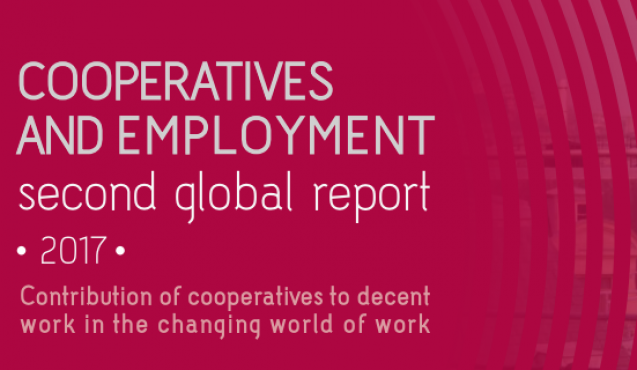Translate To:
Co-ops Employ 10% of Global Population

Co-operatives employ almost 10% of the world’s population. Based on data from 156 countries, the updated estimate shows that employment in or within the scope of co-operatives concerns at least 279.4 million people across the globe (9.46% of the world’s employed population). These are some of the results of the study CICOPA, the international organisation of industrial and service co-operatives, has released, this being its second global report on Cooperatives and Employment.
Download the full report here.
Out of this figure, 27.2 million work in co-operatives, including around 16 million co-operative employees and 11.1 million worker-members. Employment within the scope of co-operatives, comprising mainly self-employed producer-members, concerns over 252.2 million people, the vast majority being in agriculture.
Bruno Roelants, Secretary General of CICOPA, said: “Employment is one of the most important contributions made by co-operatives throughout the world. This report shows that people involved in co-operatives constitute a sufficiently high percentage to be considered as a major actor in the United Nations ‘2030 Agenda for Sustainable Development’, as well as in the worldwide debate on the ‘Future of Work’ launched by the International Labour Organization.
The number of co-operatives throughout the world is 2.94 million and the number of members in all types of co-operatives is 1,217.5 million.
The report also examines the specific contributions to addressing problems related to work and employment in the informal economy.
- People working in the informal economy who join savings and credit co-operatives, mutual insurance co-operatives, multi-purpose co-operatives and consumer co-operatives have an easier access to credit, education and training, affordable goods and services to meet their basic needs and a certain level of social protection based on solidarity and mutual help.
- Self-employed producers and entrepreneurs who join shared service co-operatives gain access to various services which help them to attain economies of scale and a higher bargaining power.
- For the self-employed workers and freelancers who have considerably increased in number over the last decades, co-operatives could be used by trade unions or member based organisations as a tool to organise them, but could also provide innovative models which could guarantee both flexibility and protection.
- Worker co-operatives, which aim at providing decent jobs to their worker-members, can be a direct solution to the formalisation of informal employment.
However, to fully display the potential contributions of the co-operatives, “a favourable environment and an appropriate legal framework are necessary” and “the co-operative model should be better explained to trade unions, member-based organisations, NGOs and local governments”, concludes the report.
“In addition, the intent of the study is to improve the methodology and the quality level of co-operative statistics. This is particularly timely, as the next International Congress of Labour Statisticians will take place in 2018. The public authorities and the co-operative movement itself should pay particular attention to this forthcoming event.”
